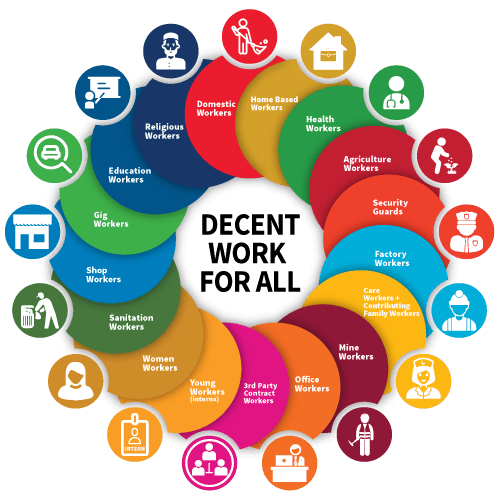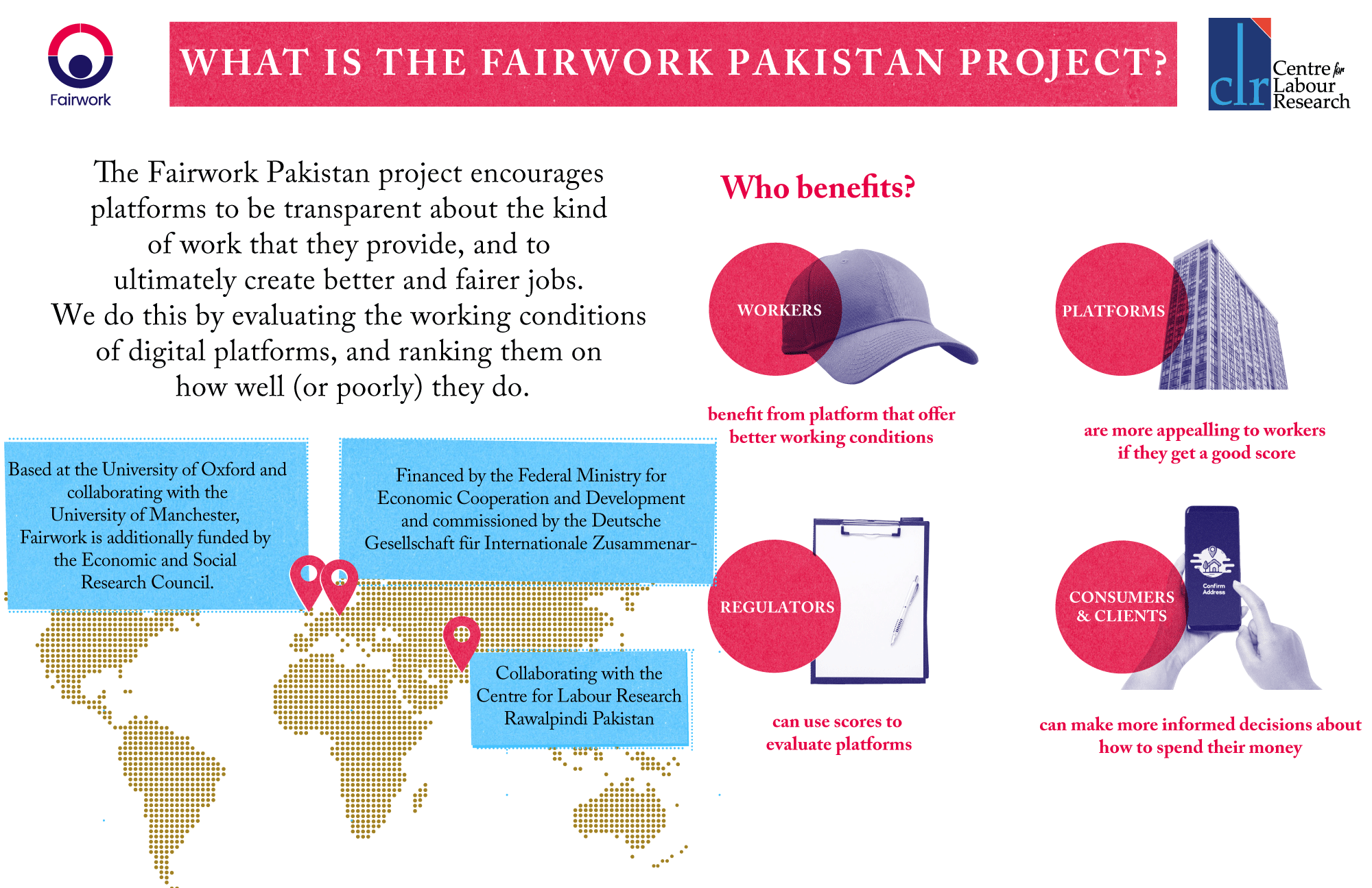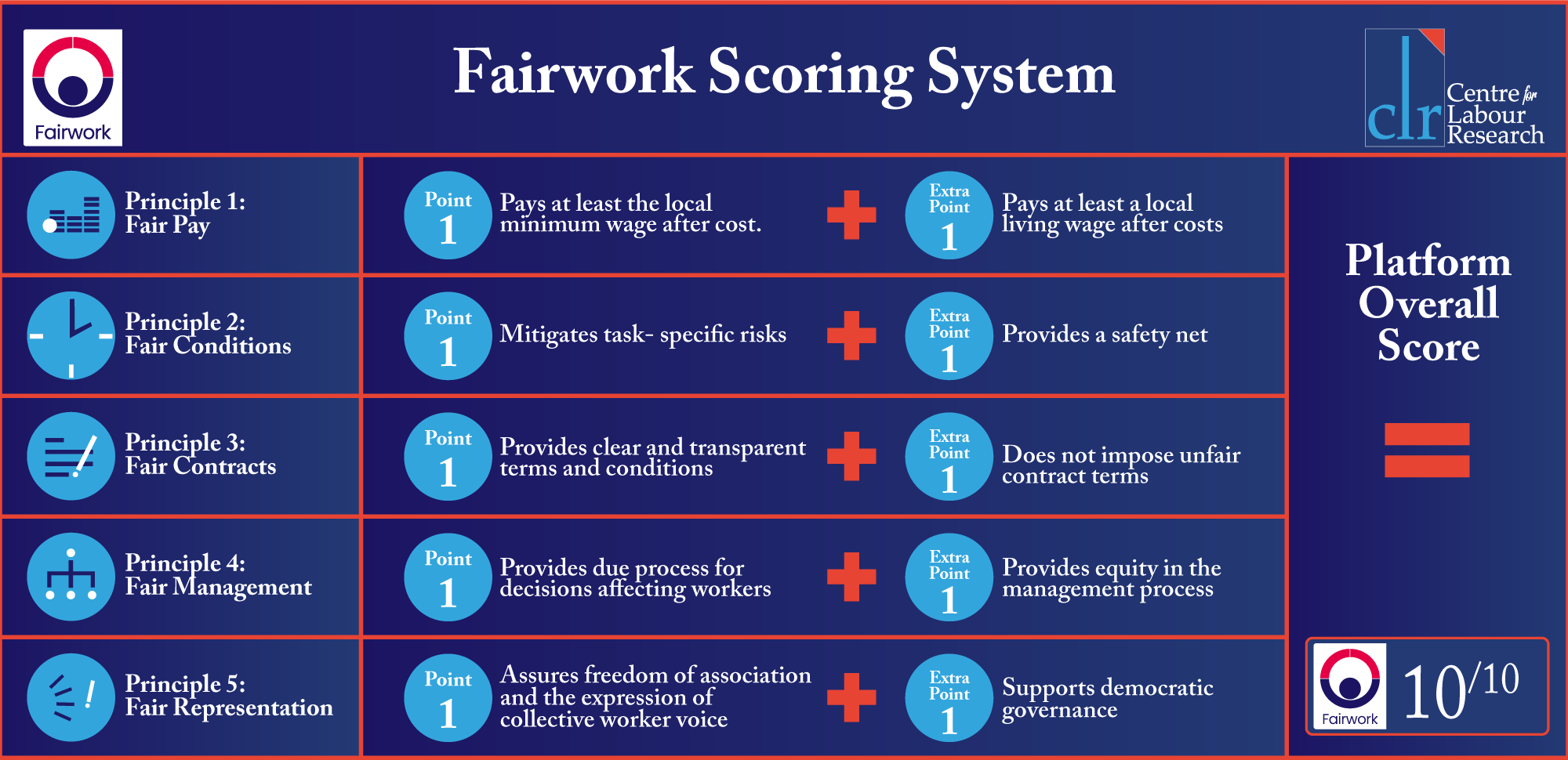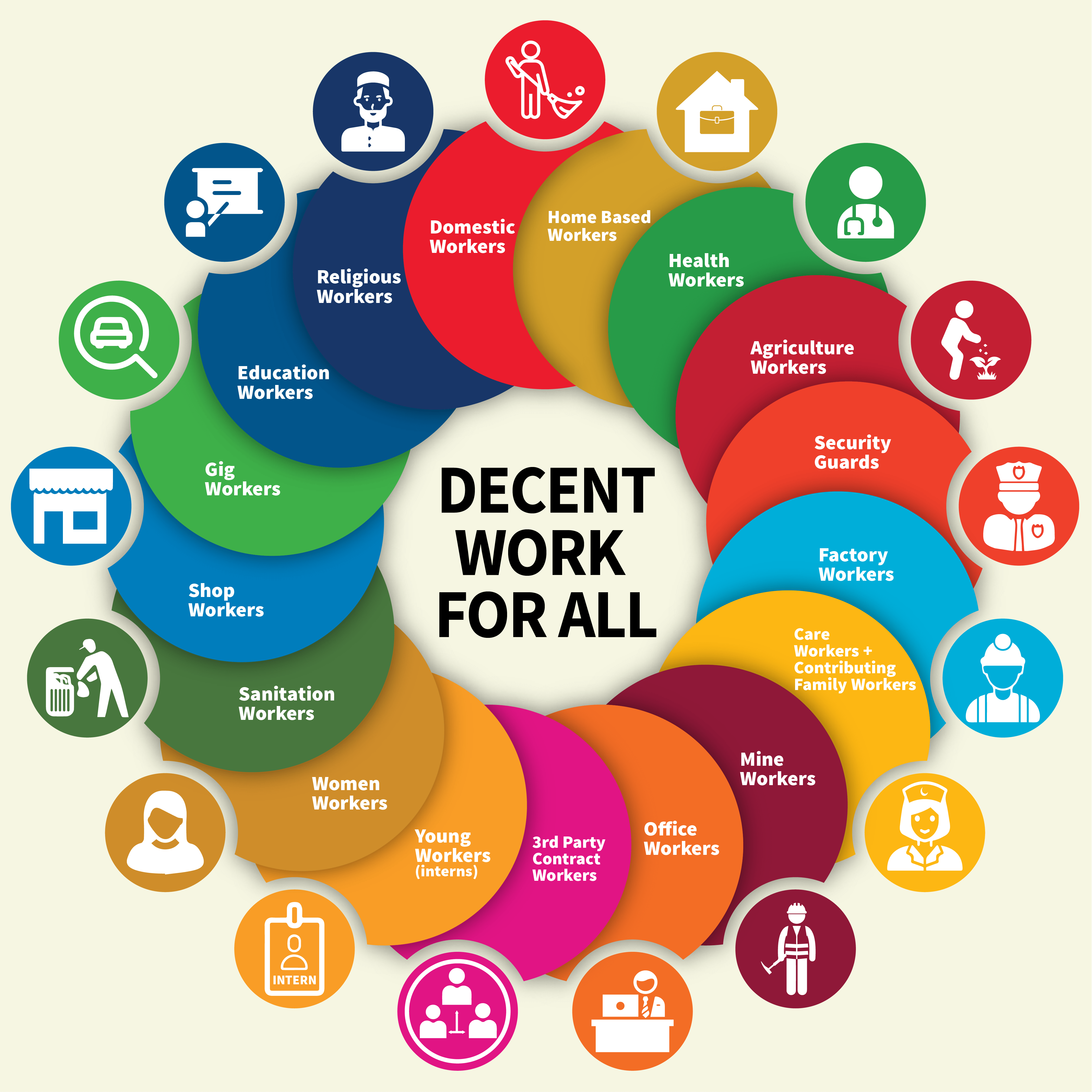Introduction
Fairwork Foundation
Globally, there are now tens of millions of digital platform workers, doing work that is outsourced via platforms or apps. This new form of work provides essential income and opportunities to many. However, lacking protection from employment law or collective bodies, many platform workers face low pay, precarity, and poor and dangerous working conditions.
Fairwork is a multi-partner global project that draws on the expertise and experience of researchers at the University of Oxford and the University of Manchester (UK) as well as the university research centres and institutes in the project countries. It is already working in South Africa, India, Germany, Chile, Ecuador, Indonesia, Bangladesh, Colombia, Egypt, Philippines and Brazil.
The Foundation is committed to highlighting best and worst practices in the platform economy. Identification of best and worst practices is done through Fairwork’s Gig Work Principles, that are generally grounded in ILO Conventions. Using those principles, every platform is given a ‘fairness’ score.
In essence, it is a way of imagining a different, much fairer, platform economy than the one we have today. By evaluating platforms against measures of fairness, Fairwork hopes to not just show what the platform economy is, but also what it can be.
Fairwork also aims to ensure that those platforms providing good pay and conditions for their workers receive public acknowledgement; helping to protect against a “race to the bottom” that seeks to compete via lowering of wages and worsening of work conditions”. They hope, to the extent possible, to work with platforms in helping them improve their scores and at the same time improve conditions for those who work for them.
Centre for Labour Research
The Centre for Labour Research, a non-profit organization registered with SECP, promotes awareness on fundamental labour rights, as guaranteed under the Constitution of Pakistan 1973. The Centre engages in research on contemporary labour issues and generates innovative ideas to deal with the labour rights malaise. The Fairwork Pakistan project is being implemented in the twin cities of Islamabad and Rawalpindi by the team at the Centre for Labour Research, led by Principal Investigator (Iftikhar Ahmad) and two co-investigators (Sidra Nizamuddin and Athar Jameel). The research team includes Shanza Sohail.
It has been launched to evaluate the working conditions of gig workers in the country. The project will rate local digital labour platforms against the five Fairwork principles of decent work, with the goal of helping improve the working conditions of platform workers.
The Fairwork Process
Each Fairwork Principle is divided into two thresholds. Accordingly, for each Principle, the scoring system allows one ‘basic point’ to be awarded corresponding to the first threshold, and an additional ‘advanced point’ to be awarded corresponding to the second threshold (see table below).
In order to be awarded the 2 points allocated to a standard, the platform has to meet the two criteria defined within that particular standard. Each criterion carries 1 point. The advanced point under each Principle can only be awarded if the basic point for that Principle has been awarded.
The thresholds specify the evidence required for a platform to receive a given point. Where no verifiable evidence is available that meets a given threshold, the platform is not awarded that point. A platform can therefore receive a maximum Fairwork Score of ten points. Fairwork Pakistan scores will be updated on a yearly basis.
Under the Fairwork Pakistan project, we gather evidence through three methods: desk research, platform interviews, and worker interviews. Later, based on the data collected, we shall publish a rating of the platform scoring it out of ten against five decent work standards: Fair pay, Fair conditions, Fair contracts, Fair management and Fair representation.
The scores are decided through a rigorous peer review process that includes the core team of researchers involved in planning and executing the research (Fairwork Pakistan team), the central Fairwork team based in Oxford, and two reviewers from other Fairwork country teams.
Ratings shall be published in the form of league tables as well as separate platform tables, explaining the scores. We shall then disseminate those ratings in the consultative sessions with the relevant stakeholders and as widely as possible.
We hope that platforms, workers, consumers, and regulators use the Fairwork framework and ratings to imagine, and realise, a fairer Pakistani gig economy.
Principle 1. Fair Pay
Workers, irrespective of their employment classification, should earn a decent income in their home jurisdiction after taking account of work-related costs and active hours worked. They should be paid on time, and for all work completed. Workers should not only earn “minimum wage” but also the “living wage”.
Principle 2. Fair conditions
Platforms should have policies in place to protect workers from foundational risks arising from the processes of work and should take proactive measures to protect and promote the health and safety of workers. Moreover, the platforms should provide a safety net compensating a worker for income loss due to inability to work on account of sickness, force majeure, occupational injury etc.
Principle 3. Fair contracts
Terms and conditions should be transparent, concise, comprehensible and always accessible to workers. The party contracting with the worker must be subject to local law and must be identified in the contract. Workers are notified of proposed changes in a reasonable timeframe before changes come into effect. The contract is free of clauses which unreasonably exclude liability for negligence on the part of the platform, and which prevent workers from seeking redress for grievances. Contracts should be consistent with the terms of workers’ engagement on the platform, as are available on app or website.
Principle 4. Fair Management
There should be a documented due process for decisions affecting workers. Workers must have the ability to appeal decisions affecting them, such as disciplinary actions and deactivation, without being victimised, and be informed of the reasons behind those decisions. There should be an identifiable and documented policy, and transparent use of algorithms in access to work and remuneration, ensuring equity in the way workers are managed on a platform. Platform and its users should not discriminate on grounds such as race, social origin, caste, ethnicity, nationality, gender, sex, gender identity and expression, disability, religion or belief, age or any other status. Practical measures to promote equality of opportunity for workers from disadvantaged groups should be sought.
Principle 5. Fair Representation
Platforms should provide a documented process through which worker voice can be expressed. Irrespective of their employment classification, workers have the right to organise in collective bodies without being victimised, and platforms should be prepared to cooperate and negotiate with them. Moreover, platform must support democratic governance in allowing workers to play a meaningful role in governing the platform through trade union or elected works councils. These five principles are applicable to all types of work, regardless of whether workers are classified as employees or independent contractors, and regardless of where and how they work.
Scoring System
Principle 1:
Fair Pay
Pays at least the local minimum wage after cost.
Pays at least a local living wage after costs
Principle 2:
Fair Conditions
Mitigates task- specific risks
Provides a safety net
Principle 3:
Fair Contracts
Provides clear and transparent terms and conditions
Does not impose unfair contract terms
Principle 4:
Fair Management
Provides due process for decisions affecting workers
Provides equity in the management process
Principle 5:
Fair Representation
Assures freedom of association and the expression of collective worker voice
Supports democratic governance




